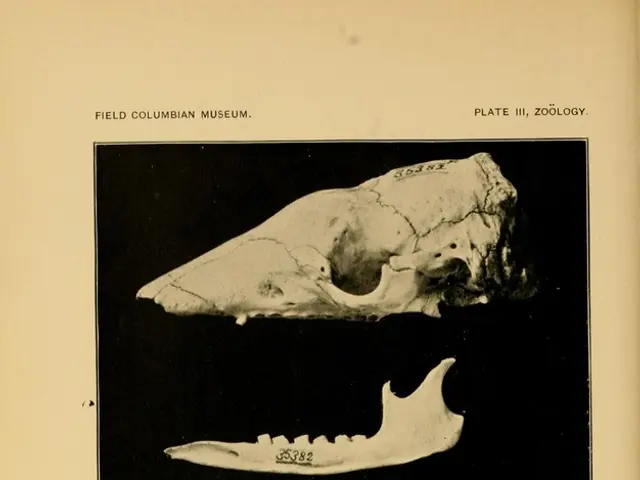Potential Reason Behind Autistic Individuals Engaging in Harmful Social Relationships
Navigating friendship as an autistic person can sometimes be a tricky business due to social nuances that might be hard to pick up on. Here's a breakdown of why autistic individuals might fall prey to toxic friendships and how to spot the warning signs:
Reason 1: Social cues blind spots
Autistic individuals often find it tough to decipher the intricate layers of social interactions, making it more challenging to spot insincere or manipulative behavior. This could involve misunderstanding sarcasm, hidden agendas, or unspoken social rules.
Reason 2: Taking things literally
Autistic people usually take things at face value, which may lead them to miss dishonesty or insincerity in a friend. They might believe what someone says without questioning their actions.
Reason 3: Desperation for connection
An intense desire for friendship and connection can make autistic individuals more susceptible to toxic friendships. In their quest for companionship, they might overlook warning signs in the hope of finding a genuine connection.
Reason 4: Differences in social expectations
Autistic individuals tend to focus on shared activities or interests rather than emotional intimacy, which can lead to misunderstandings about the balance and quality of a friendship. They might not realize if a friendship isn't reciprocal or is toxic.
Reason 5: Masking or camouflaging
Some autistic individuals may try to hide their autistic traits to blend in, forming relationships based on a false persona. This can result in unhealthy friendships built on dishonesty and unmet expectations.
Reason 6: Increased exploitation risk
Autistic people often face increased risks of exploitation due to factors such as their trusting nature, reluctance to confront issues, and potential difficulties with social nuances.
Red Flags of Toxic Friends:
If you're unsure whether your friend is toxic, watch out for these warning signs:
- One-Sided Conversations: They dominate conversations, bringing the topic back to themselves, leaving little room for meaningful dialogue with you.
- Constantly Criticizing: They frequently find fault with you, making negative comments about your interests, choices, or appearance.
- Boundary Violations: They disregard your requests for space or privacy, ignoring your need for personal boundaries.
- Unreliable: They frequently break promises, cancel plans at the last minute, or are just generally inconsistent.
- Inconsistent Behavior: Their mood and attitude towards you change without reasons, making it hard to predict their reactions.
- Isolation: They encourage you to spend less time with other friends and family, aiming to separate you from your support network.
- Taking Advantage: They only reach out when they need something from you, expecting favors without offering support in return.
- Making You Feel Bad: You consistently feel drained, anxious, or insecure after spending time with them.
What to do if you suspect a friend is toxic:
- Trust your gut: Listen to how you feel after spending time with this friend. If they leave you feeling worse than before, it may be a sign of a toxic friendship.
- Identify red flags: Analyze your interactions with this friend, looking for recurring patterns that trigger negative feelings.
- Seek outside perspective: Talk to someone you trust about your concerns, such as a family member, therapist, or another friend. They can provide a fresh view and offer support.
- Communicate your concerns: Express your worries to your friend directly, using clear and assertive language. Assuming good intent can help foster a meaningful conversation.
- Maintain the benefit of the doubt: Give your friend the opportunity to rectify their behavior before taking decisive action.
- Set and enforce boundaries: Clearly communicate your needs and boundaries, and be prepared to take action if your friend disregards them.
- Prioritize self-care: Engage in activities that help you manage stress and support your emotional well-being, such as practicing mindfulness or pursuing your special interests.
- Build a support network: Surround yourself with people who are accepting, respectful, and supportive, making you feel valued and appreciated.
- Learn about healthy relationships: Educate yourself on healthy relationship dynamics through books, articles, or therapy to develop a better understanding of what constitutes a fulfilling friendship.
- Autistic individuals, due to their blind spots in social cues, may struggle to recognize emotions such as insincerity or manipulation in their interactions.
- The literal interpretation of words by autistic people can lead to a misunderstanding of dishonesty or insincerity in friends.
- The intense desire for connection experienced by some autistic individuals makes them more vulnerable to entering toxic relationships.
- Autistic individuals often focus on shared activities or interests, which may result in misunderstandings about the quality and balance of friendships.
- Masking or camouflaging of autistic traits can lead to unhealthy relationships based on a false persona and unmet expectations.
- Autistic people face increased risks of exploitation due to their trusting nature, reluctance to confront issues, and difficulty with social nuances.
- Signs of a toxic friendship include one-sided conversations, constant criticism, boundary violations, unreliability, inconsistent behavior, isolation, taking advantage, making the person feel bad, and a lack of emotional support.
- If you suspect a friend is toxic, start by trusting your gut feelings, identifying recurring red flags, seeking outside perspective, communicating your concerns directly, giving your friend the chance to correct their behavior, setting and enforcing boundaries, prioritizing self-care activities, building a supportive network, and educating yourself on healthy relationship dynamics.
- Ensuring mental health and well-being is crucial for navigating friendships as an autistic person, and seeking therapy, self-care practices, and resources on personal growth, education, and self-development can aid in this process.
- Engaging in mindfulness, self-care, and activities that promote relaxation and stress management can help autistic individuals better cope with anxiety and improve their self-esteem in social situations.








